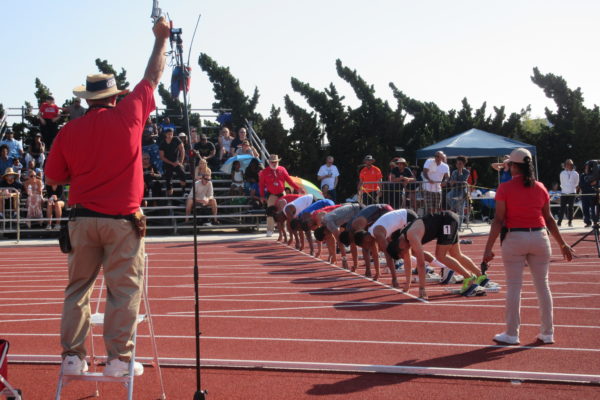The Role of Preventative Officiating in High School Cross Country
By Julie Cochran, NFHS Director of Sports and Middle Schools on September 23, 2024 Track & Field/Cross Country article PrintIn the world of high school cross country, the focus is often on the athletes— their training, dedication, and performances. However, behind every successful race lies a team of unsung heroes: the officials. Among their many responsibilities, one crucial yet often overlooked aspect is preventative officiating. This proactive approach is essential to ensuring fair competition, athlete safety, and the smooth execution of events.
Preventative officiating refers to the actions taken by officials to prevent issues before they arise. This method contrasts with reactive officiating, where officials address problems after they occur. In cross country, preventative officiating encompasses a range of duties, from pre-racecourse inspections to athlete briefings, coaches’ meetings and constant vigilance during the race.
One of the primary tasks of cross-country officials is to inspect the race course before the event. This involves checking for hazards, such as uneven terrain, debris, or obstacles that could pose risks to runners. By identifying and addressing these potential dangers beforehand, officials help ensure a safe environment for all participants.
Additionally, officials play a key role in clarifying rules and expectations for both coaches and athletes. Pre-race briefings for officials’ crew, volunteers and coaches cover essential information, such as course layout, start and finish procedures, and any specific regulations pertinent to the event. Clear communication helps prevent misunderstandings and ensures everyone is on the same page.
During the race, officials are strategically positioned along the course to monitor athlete behavior and enforce rules. Their presence serves as a deterrent to rule violations, such as cutting the course or engaging in unsportsmanlike conduct. By maintaining a visible and attentive presence, officials can address minor issues before they escalate into significant problems.
For example, if an official notices a runner straying off course, they can quickly redirect them, preventing a potential disqualification. Similarly, if an official observes a runner displaying signs of distress or injury, they can promptly alert medical personnel, ensuring the athlete receives timely assistance.
Preventative officiating doesn't end when the race is over. Post-race duties include reviewing results to ensure accuracy and addressing any concerns raised by coaches or athletes. By thoroughly evaluating the event, officials can identify areas for improvement and implement changes for future races, further enhancing the quality and safety of high school cross country competitions.
The benefits of preventative officiating in high school cross country are manifold. Athletes compete in a safer environment, reducing the risk of injuries. Fair play is upheld, ensuring that results reflect the true performances of the runners. Coaches and athletes can focus on their strategies and efforts, knowing that officials are working diligently to maintain a level playing field.
Moreover, preventative officiating fosters a culture of respect and integrity within the sport. Athletes learn the importance of adhering to rules and the value of sportsmanship, lessons that extend beyond the cross country course and into their everyday lives.







